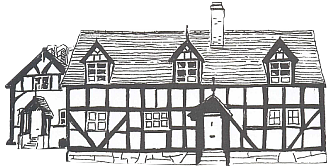Flu Vaccinations 2016/17


Hodnet Medical Centre has recently published on its website a reminder that it is Flu Vaccination season again.
The post reminds people that “Flu is a highly infectious illness that spreads rapidly through the coughs and sneezes of people who are carrying the virus.” It the lists the follow people who are eligible to receive a free flu jab:
- are 65 years of age or over (before 31st April 2014);
- are pregnant;
- have certain medical conditions;
- are living in a long-stay residential care home or other long-stay care facility;
- receive a carer’s allowance, or you are the main Carer for an elderly or disabled person whose welfare may be at risk if you fall ill;
- are a healthcare worker with direct patient contact or a social care worker.
The criteria for each of these groups are listed in the post, which also states that flu vaccine is available for some children, but as a nasal spray instead of an injection.
Those who wish to take advantage of flu vaccination should contact their GP or practice nurse. The best time of the year to have a flu vaccination is from September to early November. Flu jabs received in previous years normally do not protect people in later years because the viruses that cause flu are always changing.
No vaccine is 100% effective, however people who have had the flu jab are less likely to get flu and if they do it will probably be milder than if they hadn’t been vaccinated. The adult flu injection doesn’t cause flu as it doesn’t contain live viruses. Some people do however experience side effects after having the injection, these can be a temperature and aching muscles for a couple of days afterwards. Sore arms at the point of the injection are also common, but more severe reactions are rare.
The flu vaccine only protects against flu, patients may still catch other types of infections caused by viruses, such as the common cold.
